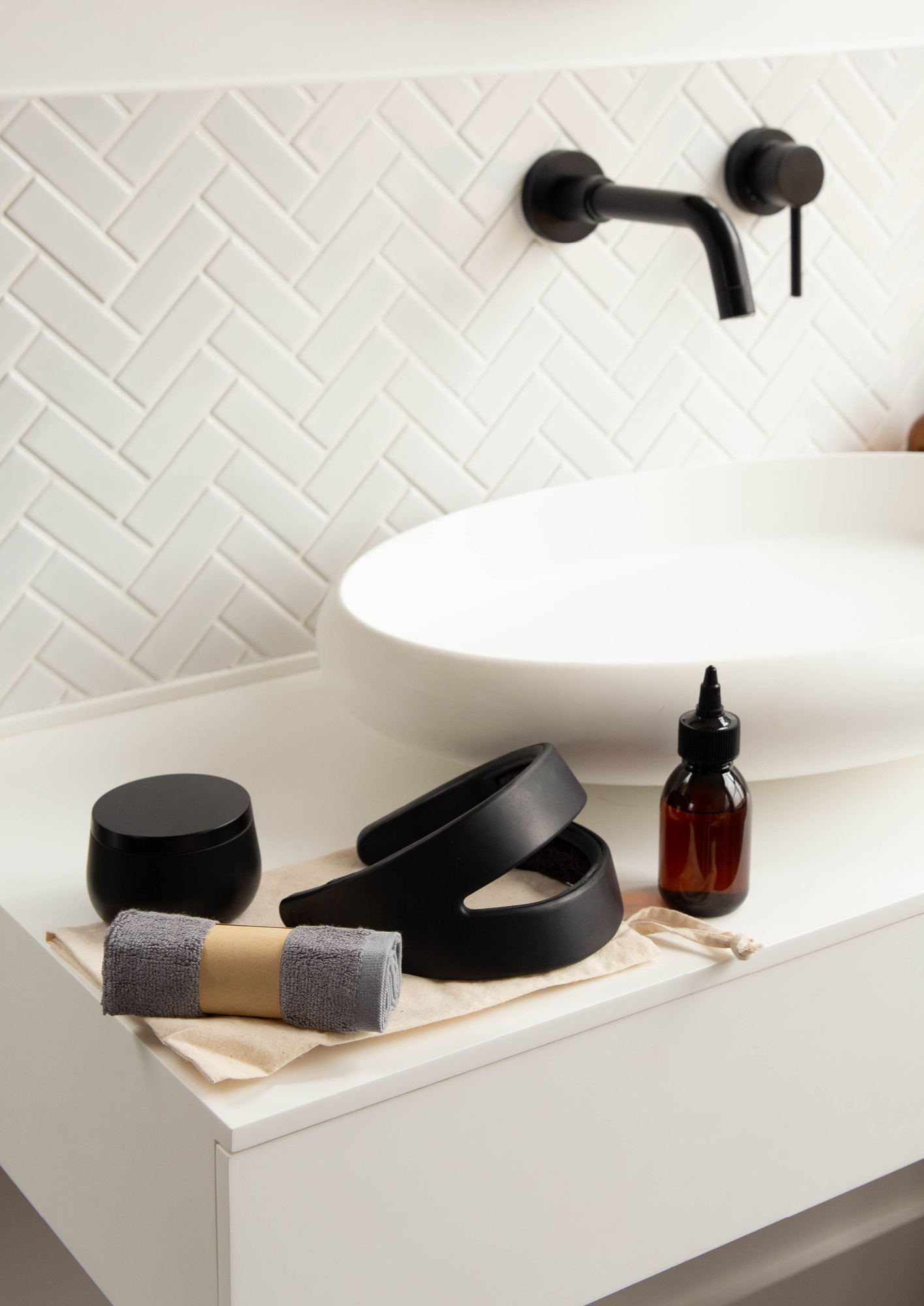Co-founder of Samphire Neuroscience Emilė Radytė is leading the way in women’s health with Nettle
Can you tell us about your background and how it inspired you to found Samphire Neuroscience?
I was born and raised in Lithuania, but I was fortunate enough to study Neuroscience & Anthropology at Havard for my undergraduate degree. I then went on to get my master’s and PhD at Oxford University, focusing on neuroscience.
I think the part of my background that was the most formative was when I worked as an emergency medic during the three years I was a student in the States. One of the most striking things I found was that we were mostly treating psychiatric emergencies, such as panic attacks and depressive episodes.
Because of this, I began to focus my studies and work on researching novel forms of brain stimulation – an alternative treatment to antidepressants. I realised that most people with depression were women and, for many, these symptoms often began around reproductive events such as periods, pregnancies and/or menopause.
This was why, three years ago, we founded Samphire with the mission of taking all the knowledge we know from the lab and transforming it into treatments that can be used every day.
Can you tell us about Nettle and what you hope it will achieve?
Nettle is the first product created by Samphire Neuroscience and is a treatment for menstrual pain and PMS symptoms.
We have developed a sleek-looking headband that uses tDCS (transcranial direct current stimulation) to target specific areas of the brain with a small electric current. The front of the headband targets the prefrontal cortex, which helps with mood symptoms, and the back of the headband targets the motor cortex, which helps with pain.
Those suffering from bad pain and mood symptoms can wear this headband with ease for 20 minutes a day for five days before the start of your period and it will drastically reduce symptoms. During its clinical trials, it was reported that 72 per cent of women experienced a pain reduction of over half after a single period and two thirds of women saw an increase in both functionality and positive mood within a single period.
With Nettle, we hope to transform a space that really needed a revolution a long time ago.

Emilė Radytė
How does Nettle compare to traditional PMS and menstrual pain treatments?
When it comes to menstrual pain treatments, the most common options are painkillers or oral contraceptives. Women find themselves having to use these invasive pharmacological options as they don’t have another choice. In terms of mood treatment, there is no other specific solution on the market that helps with mood regulation in women who suffer from PMS or PMDD.
The main difference with Nettle is that it targets pain perception and mood perception by going straight to the source, without creating side effects on the rest of the body.
What were the biggest challenges you faced bringing Nettle from concept to market?
Nettle is a very new technology, so we naturally thought that educating women on its abilities would be our biggest challenge. However, it turned out that women were very keen to learn but, in the process, they were challenged to understand and learn about their own bodies. A lot of women don’t know their natural menstrual cycle because of how long it has been tampered with due to invasive treatments. A large part of our job is just educating women about their bodies, and this was the biggest barrier we have faced.

Nettle targets pain perception and mood perception by going straight to the source
How has being a woman affected your career? Has it negatively or positively impacted you?
When I was growing up, I was quite unaware of my gender and any implications it may have. When I moved to the States to study, I began noticing my STEM classes were predominantly male dominated and my peers who were given further opportunities tended to be male too. During these years, I always tried to carry a “pretend it doesn’t exist” attitude.
I also think my gender and education have made me very clued into the behavioural and cultural changes related to women. We have known about PMS for some time yet research into treating the symptoms has never been done. With women now in much more cognitively demanding jobs, how we feel in a day can determine our output. This is one reason why I’m so dedicated to this research, as I think it is an absolute game changer for women in the workforce.
What’s next for Emilė Radytė and Nettle?
We want to make Nettle more attainable for women across the world so, we are ramping up manufacturing in Europe and the UK and working on our US certification. We are also working on different products, specifically for menopause and fourth-trimester care, as we want to continue serving women where they need us the most.


